
Fall 2024 NRTH graduates
Convocation November 2024: Emily Gomes-Szoke, Prof. Derek Mueller, Chelsea Abbott
Some of our Alumni:

Kelsey Crouse, M.Sc. Northern Studies
Kelsey Crouse – Fall 2022
Current work/position title: Ocean Research and Operations Advisor
How the NRTH program helped get me the position: The Northern Studies program directly helped me obtain my current position. My background going into the Northern Studies program was environmental science with a focus on marine ecology. While in the program I expanded my knowledge on marine ecology and fisheries through my research project, where I explored Chinook salmon in the Yukon River watershed. I first heard about the Oceans North while working on a project for NRTH5001 and worked for them for my work practicum, which led to a full time position.

Sarah Simpkin, M.Sc. Northern Studies
Sarah Simpkin – Fall 2021
I have joined Carleton University as the Associate University Librarian (Academic Services). I was fortunate enough to take a sabbatical from my previous position to complete the MSc. in Northern Studies in 2020-2021. With an emphasis on the social, political, and physical environments of northern Canada, the program embodies Carleton’s strengths in interdisciplinary research and experiential learning. I’m looking forward to using the knowledge I gained during my graduate studies to support the research, teaching and learning needs of the Carleton community in the years to come.
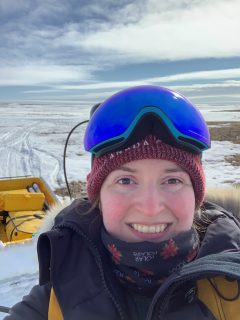
Samantha McBeth, M.Sc. Northern Studies
Since graduating from the M.Sc. in Northern Studies, Samantha McBeth has split her time between Ottawa and Nunavut, working contracts for various federal agencies, such as DFO, Parks Canada, and the Canadian Museum of Nature, non-profits such as the Canadian Commission for UNESCO and the Mars Society, as well as field guiding in the polar regions for private companies. She is currently a research assistant, field technician and safe operations coordinator at Canadian High Arctic Research Station (CHARS). As a safe operations coordinator, she drafts policy on best practices at Polar Knowledge Canada for safe and respectful research procedures. In the field, she assists on various terrestrial ecology and geomorphological projects in the area of Cambridge Bay. Her current position came out of her Practicum in the Northern Studies program.
“Undertaking a M.Sc. in Northern Studies has allowed me to really understand the interdisciplinary reality of working and decision-making in the Canadian North in its intricacies. I have gained a greater appreciation of the connectivity between people, landscapes and government, and the great difference of impact between local policy and directives from the South. I love how everyday working for the North brings discussions, innovations and learning, how the solutions can be very creative, and how your colleagues and work partners are some of the kindest and generous people you’ll ever meet.” Samantha McBeth
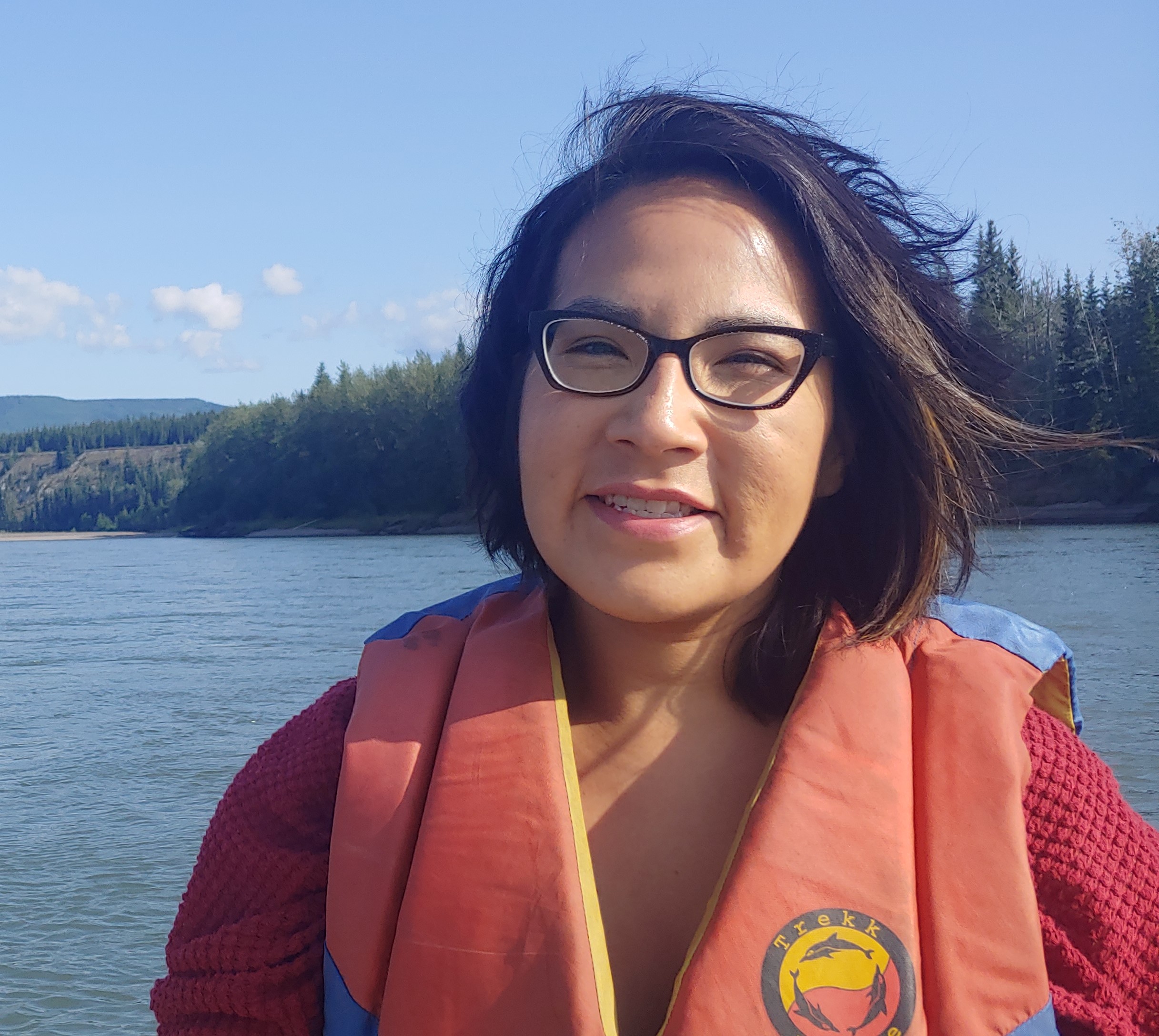
Monica Pishew, M.A. Northern Studies
Monica Pishew took her NRTH 5901 Practicum in May-August 2019 at Carleton University as a paid Research Assistant in the Modern Treaty Implementation Research Project. Carleton University is the academic host and the Tłı̨chǫ Government is the Land Claims Agreements Coalition host for this project. She examined the 26 Modern Treaties for Indigenous approaches to Modern Treaty implementation in governance and delivery of programs and initiatives and is scheduled to present some of her work at the 8th National Land Claims Agreements Coalition Conference in February 2020.
Monica’s interest for the program grew when her territory, located in Ontario’s Far North, experienced a short winter road season in 2016 due to climate change. Throughout the program her focus was on Arctic communities’ response to climate change and their changing environments. During the Northern Studies Field Course, she was compelled to share what she learned about climate change and adaptation strategies. In December 2019 she is scheduled to present at the Windigo First Nations Council Chiefs Meeting and in January 2020 she is scheduled to present to The Arctic Circle “Student Night” in Ottawa on Canada’s Arctic communities climate change and adaptation strategies. Through the presentation she hopes to convey the importance of beginning to think about the steps needed to respond to and adapt to climate change so that the First Nations communities in Ontario’s Far North are prepared and to inform others about how climate change is affecting her territory.
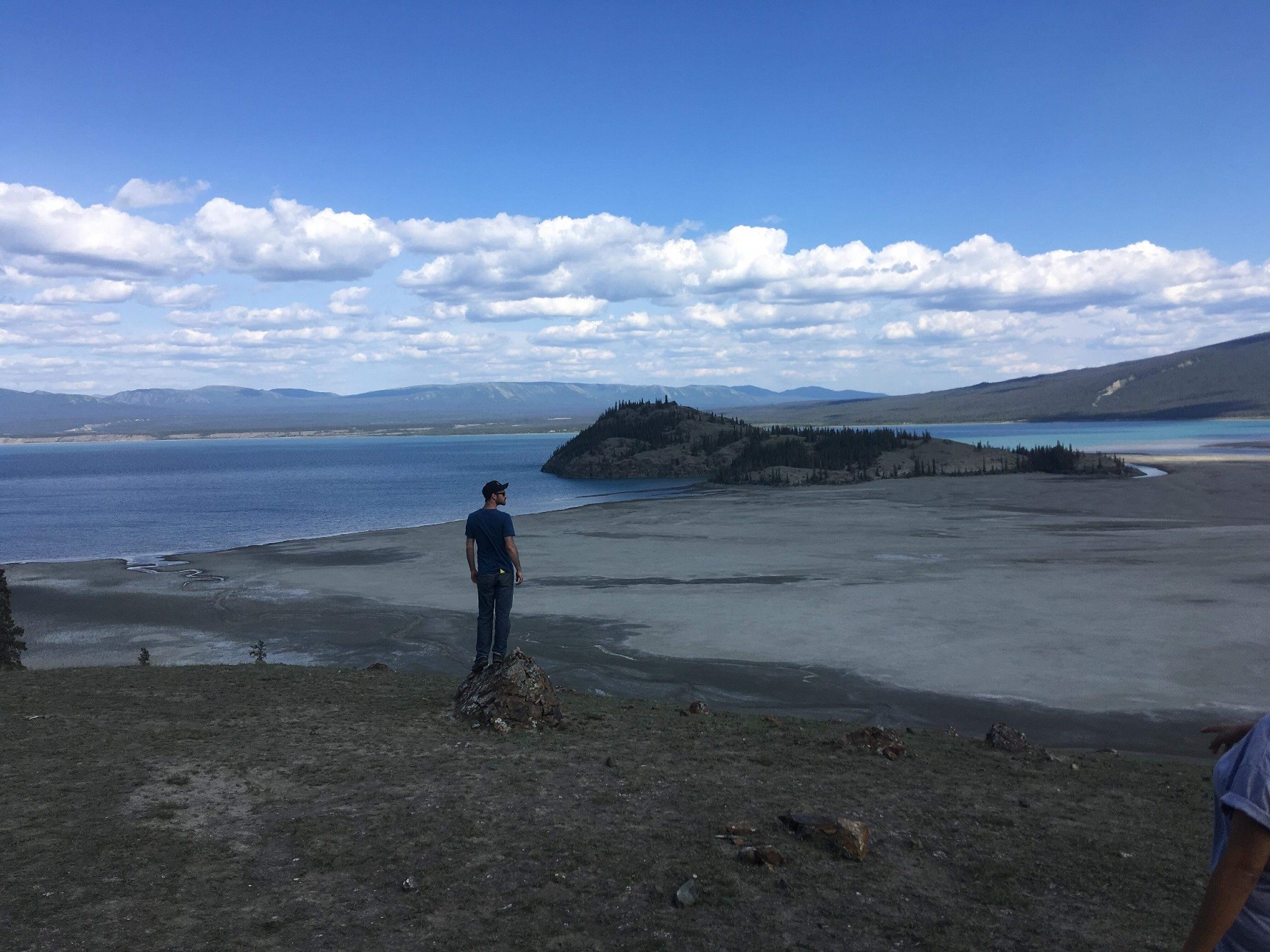
Andrew MacGregor, M.A. Northern Studies
Andrew MacGregor graduated from the M.A. program in 2019 and is currently working as a researcher for NVision Insight Group, an Indigenous consulting firm located in Ottawa. His practicum placement was at NVision and he was offered a position at the firm after completing the field course in the Yukon. The position he secured was a direct result of the Northern Studies program; he first met a consultant at NVision during a guest lecture for the NRTH 5001 course, and this connection led to his work placement and eventual employment.
Andrew’s work with NVision is quite diverse; he has worked on labour market strategies for Inuit, park planning in Nunavut, gender-based violence programming in Ottawa, and general administrative work for the Land Claims Agreements Coalition. His work has connected him to a vast network of government officials, Indigenous leaders and industry professionals, and has provided him with opportunities to travel to communities across the country.
“The Northern Studies program at Carleton introduced me to the field of study that has become my career. The network and connections developed through this program have been a huge benefit to my career, and the skills I developed through my course work are directly applicable to the work I am currently doing. The interdisciplinary nature of the program, coupled with the hands-on experience gained through the fields courses and practicum, helped me understand some of the complexities of issues in the north, and exposed the links between things like policy, environment and culture.”
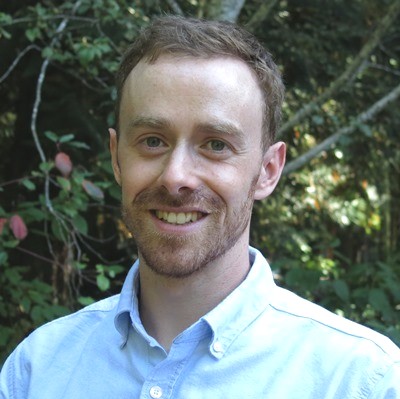
Andrew Thompson, M.Sc. Northern Studies
Since graduating from the Northern Studies program in 2018, Andrew has been employed as a research assistant at ESSA Technologies Ltd. Andrew’s work involves providing research, advice, knowledge synthesis to address complex natural resource management challenges, including improving the management of fisheries, promoting climate change adaptation, and supporting the implementation of co-management agreements.
“The Northern Studies program exposed me to a wide variety of perspectives about the challenges of resource management in Canada’s north. My instructors challenged me to be critical about my own biases and helped me to think systematically and holistically about Canadian issues. By letting me choose from a wide variety of courses, I was able to tailor the program to my own interests.” Andrew Thompson
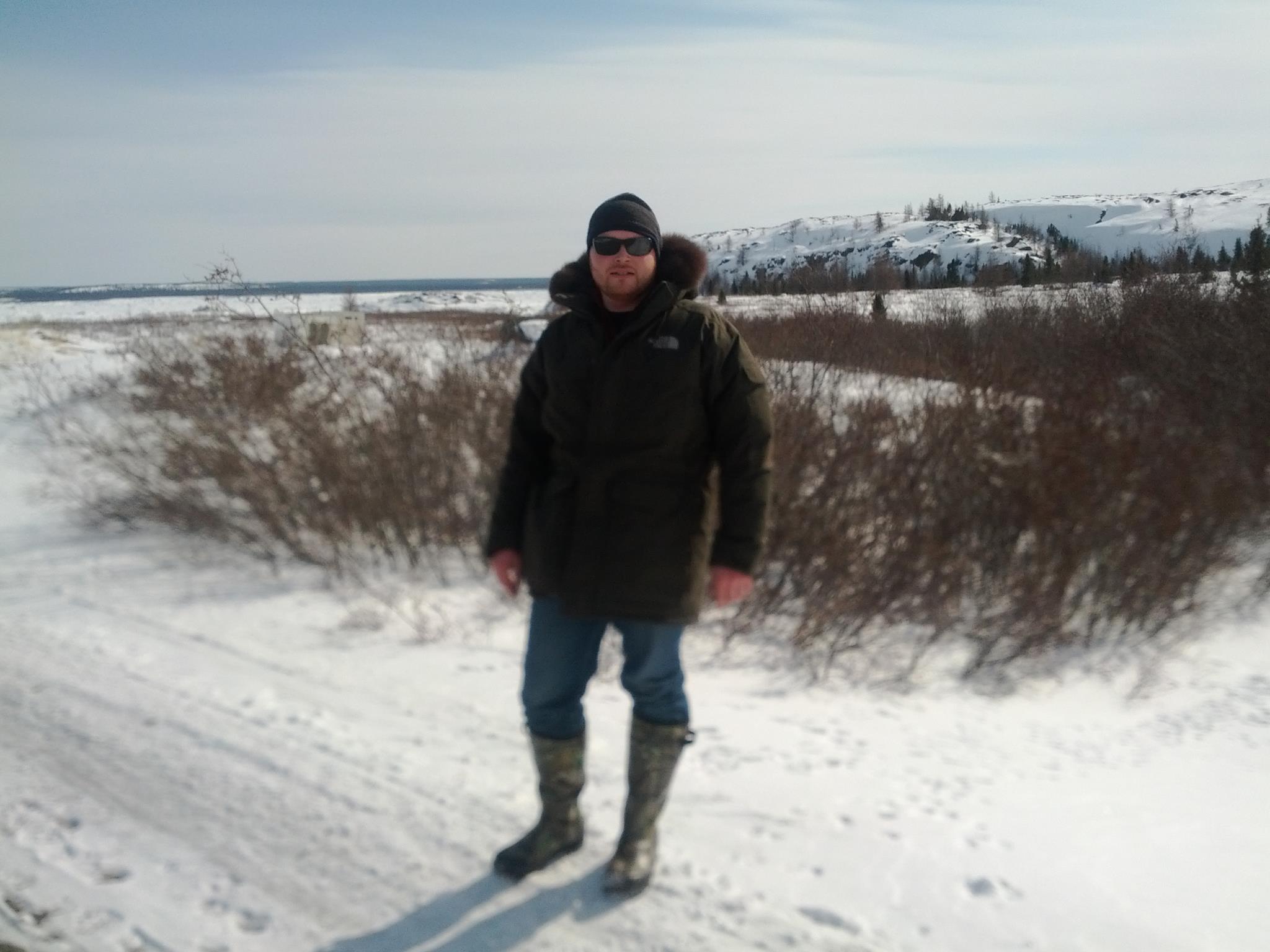
Chase Morrison, M.Sc. Northern Studies
Chase Morrison graduated from the M.Sc. program in 2018. He is currently working for the Northern Affairs Organization (NAO) at Crown-Indigenous Relations and Northern Affairs Canada (CIRNAC) headquarters in Gatineau. As a policy analyst, the majority of his work pertains to departmental scientific initiatives such as the Canadian High Arctic Research Station (CHARS) and the Northern Contaminants Program (NCP). Chase’s current position came out of his Practicum in the Northern Studies program.
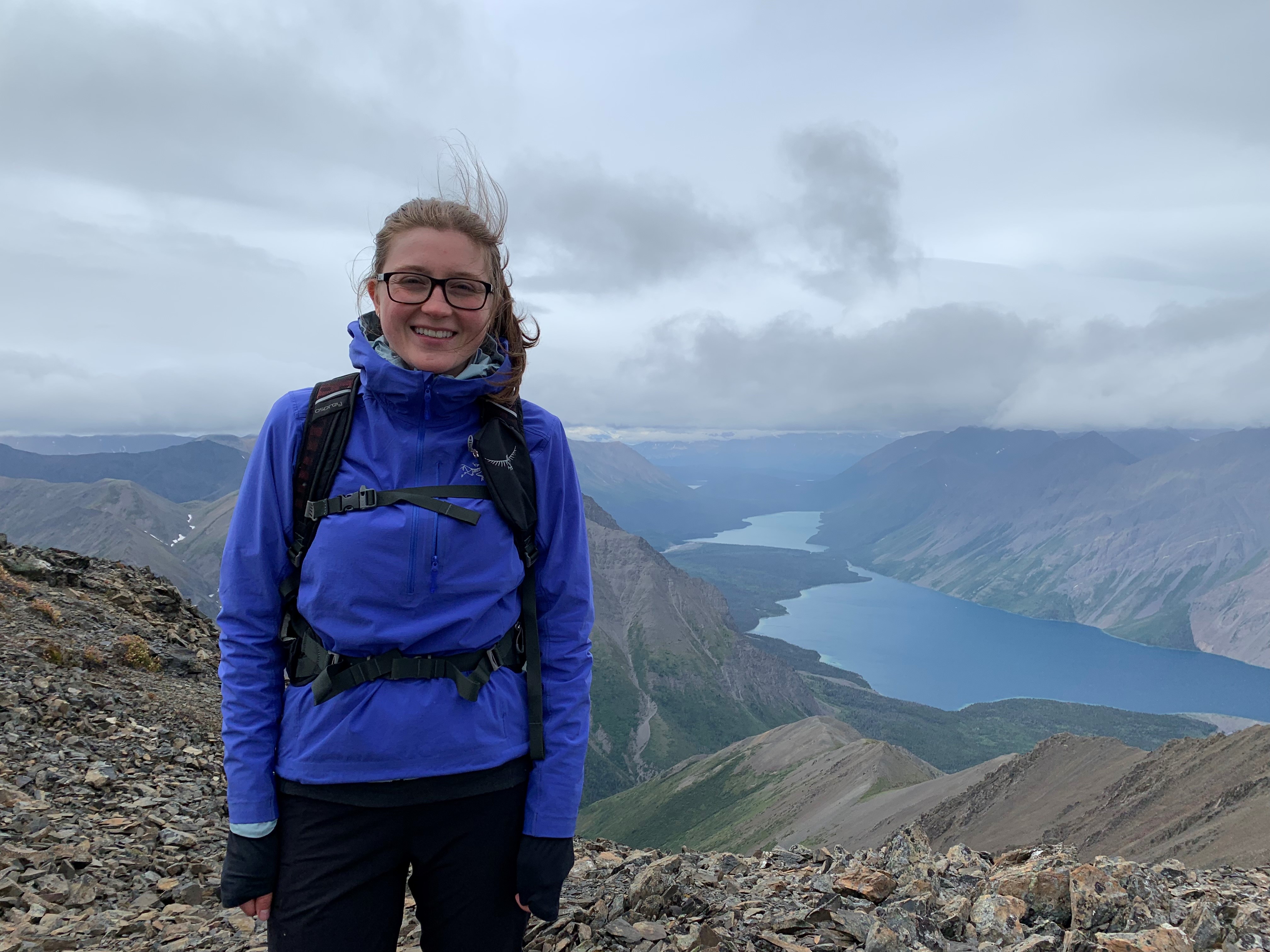
Michelle Olejarz, M.Sc. Northern Studies
Michelle Olejarz is working with the planning and sustainability department with the city of Whitehorse this summer. Her practicum placement while completing her M.Sc. Northern Studies program was working as a permafrost researcher with the Northern Climate Exchange at the Yukon Research Centre. She is currently in her last year of school to become a geography teacher.
“I’ve always been passionate about geography and physical landscapes, and my experiences in the Northern Studies program and my associated work placement has contributed to my interest in pursuing work that has a Northern focus.” Michelle Olejarz
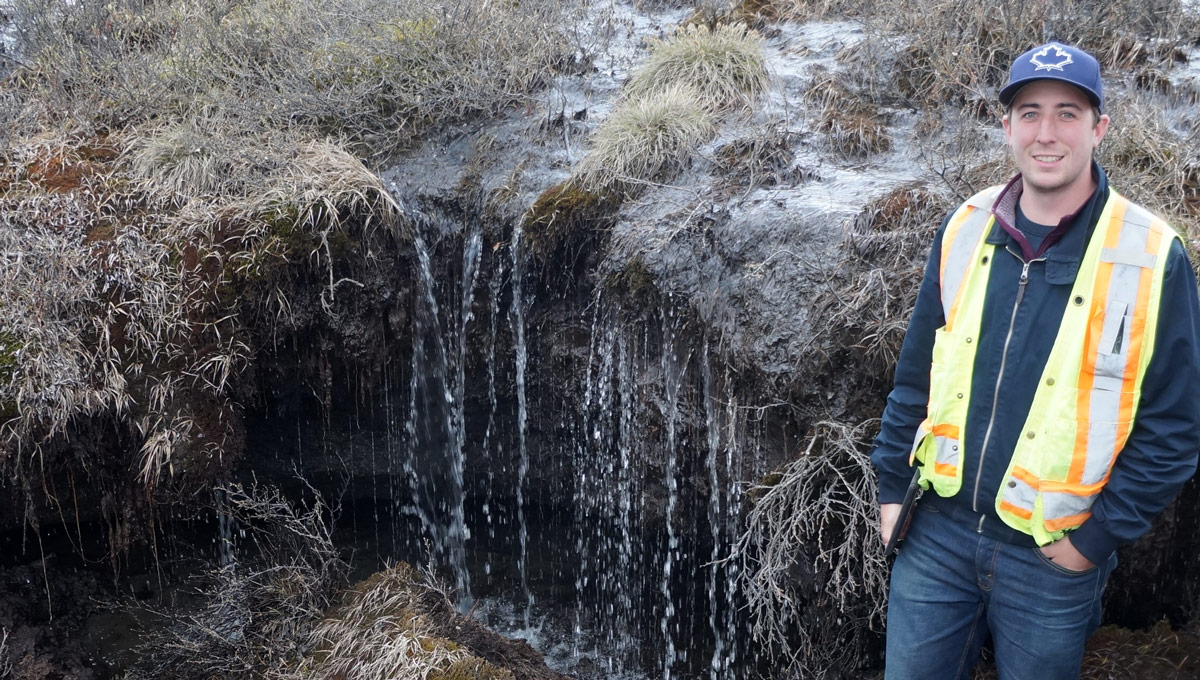
Michael Scarizzi, M.Sc. Northern Studies
Mike Scarizzi graduated from the M.Sc. program in 2018. Currently he is working in Whitehorse for the Transportation Engineering Branch (TEB) of Yukon Highways and Public Works. He started working for TEB during his Practicum in the Northern Studies Program. Part of his work involves assessing the sustainability of the transportation network in the face of climate change.
“The opportunity to undertake the M.Sc. in Northern Studies allowed myself to explore the intricacies of decision making in Canada’s north on a variety of topics. While the program is interdisciplinary by nature, the emphasis of studying and learning about the biophysical, policy and social environments of northern Canada drew me to this program as an educational opportunity. I have gained a greater appreciation of the multi-faceted issues facing people and communities in Canada’s North, and the incorporation of the social and policy implications for northern Canada and its relation to climate change was an attractive component of this program for me.” Michael Scarizzi
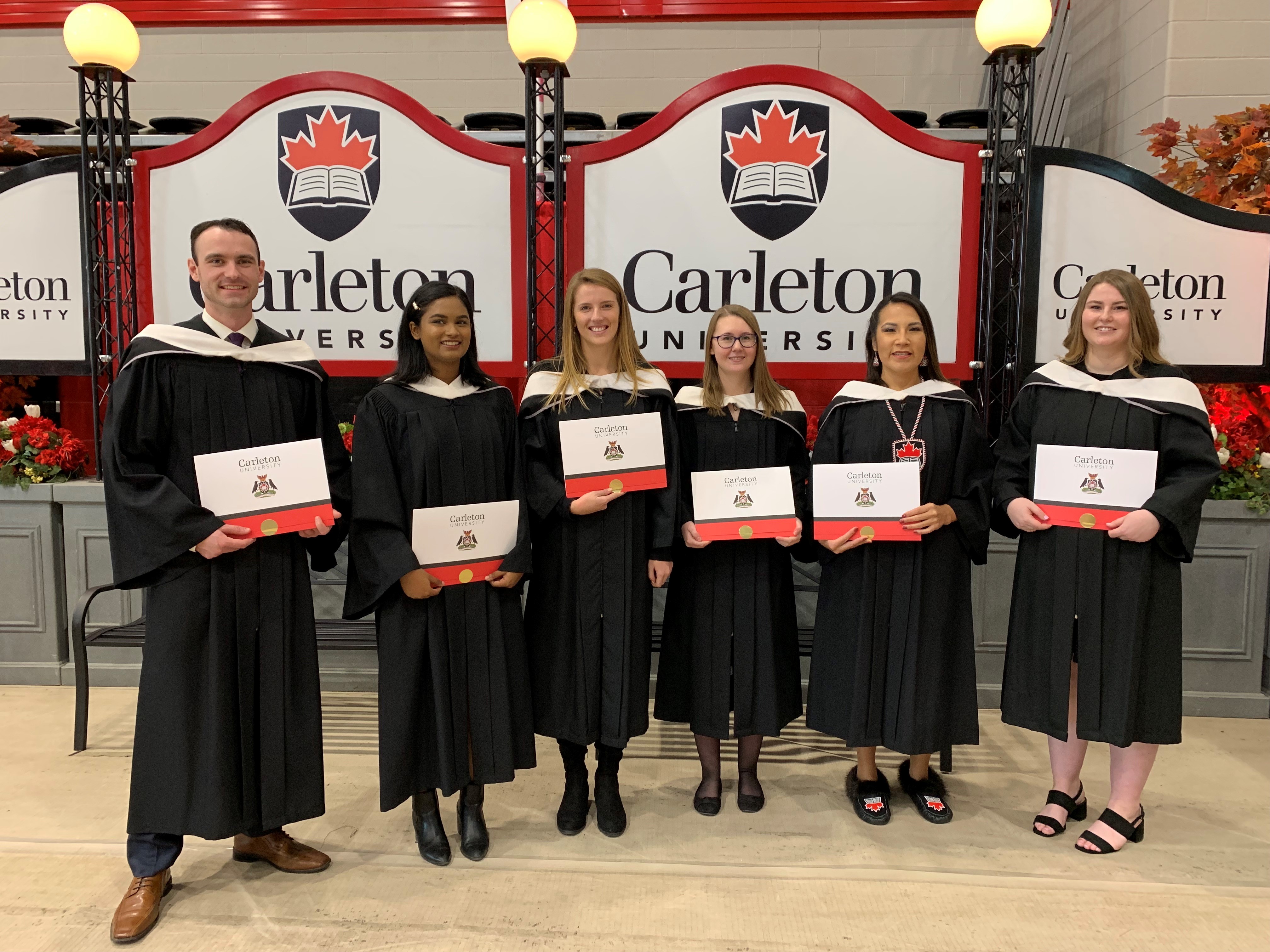
First class of NRTH graduates